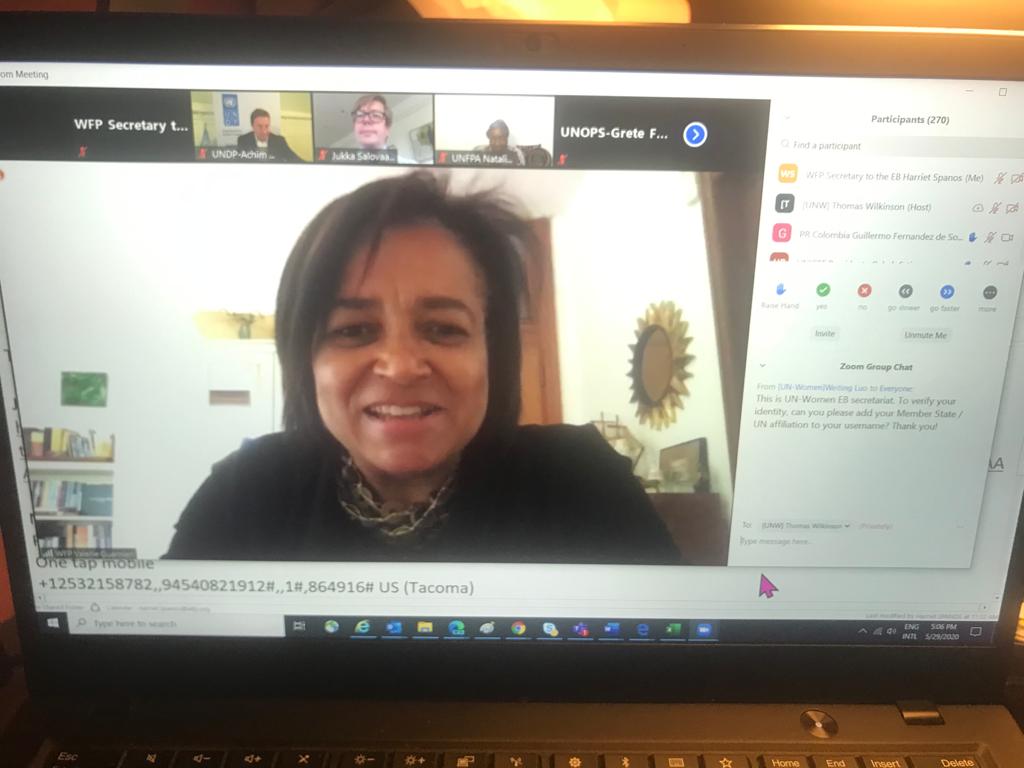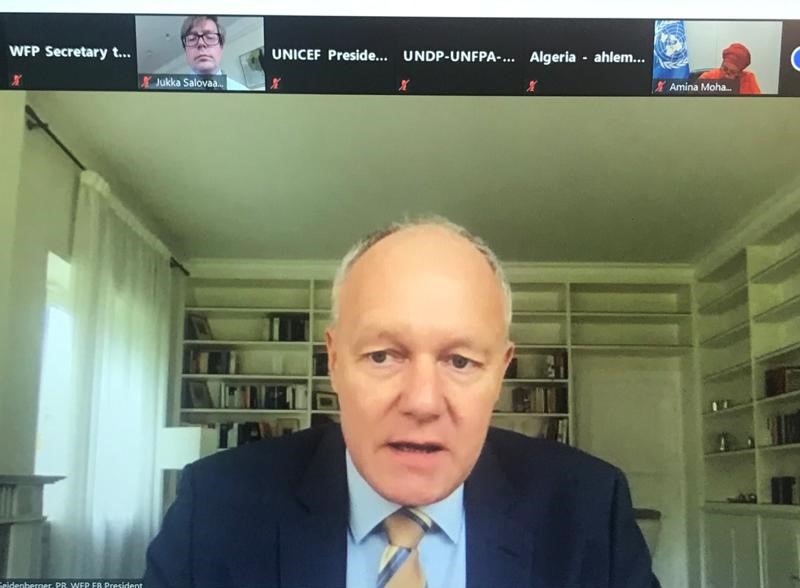For a half-day on 29 May, over 600 participants from Rome, New York and other capitals attended the first virtual Joint Meeting of the Executive Boards of UNDP/UNFPA/UNOPS, UNICEF, UN-Women and WFP (JMB). H.E. Mr. Jukka Salovaara, the President of the UN-Women Executive Board, Ambassador and Permanent Representative of Finland to the United Nations, opened the virtual JMB, welcoming fellow Board Presidents, the Deputy Secretary-General of the United Nations, Ms. Amina J. Mohammed, the Memberships of the Executive Boards of UNDP/UNFPA/UNOPS, UNICEF, UN-Women and WFP, and the principals/representative of the six participating United Nations entities. Given the global COVID-19 pandemic, the UN-Women President said this was a defining moment for the United Nations development system which would be expected to be functioning at its best – with effective and efficient coordination, void of overlap among entities.

In her opening address, the Deputy Secretary-General thanked the Executive Boards for their leadership and colleagues particularly at the country level, for their commitment in transforming the United Nations system, noting the JMB was an opportunity to ensure that the system-wide guidance of Member States would be effectively taken on board by each governing body. She spoke of the leadership and ownership across governing bodies collectively as being one of the significant features of the reform process, that would remain key for success, not only in moving ahead globally on the road to recovery from COVID-19, but also upon progressing through the Decade of Action for the Sustainable Development Goals (SDGs).
On behalf of the WFP Executive Director, Ms. Valerie Guarnieri, WFP Assistant Executive Director, expressed concern that the implications of the socio-economic fallout could be even more devastating, noting that WFP estimates indicated that the number of acutely hungry people was likely to double this year due to the COVID-19 pandemic to 260 million while more than 300 million children were missing out on school meals as a result of pandemic. Ms. Guarnieri stressed that national response is essential to COVID-19 response and recovery, and that the role of the United Nations was to support national response and to incorporate real-time learning in the process.

H.E. Dr. Ulrich Seidenberger, President of the WFP Executive Board, commended the redoubling of efforts of the United Nations system to work jointly during this unprecedented crisis. Under the theme of continued integrated support, he highlighted three main points on:
- Analysis: A UN framework for the immediate socio-economic response to COVID-19 was a welcome comprehensive approach due to the strong focus on food security, the food systemic risks of COVID-19, as well as the right to food and would be an important guidance tool among others also in the discussions of the “Rome-based Membership informal Group of Friends for the Food Systems Summit 2021” in preparation for the Summit, however, it lacked a clear conceptual connection with respect to the humanitarian crisis response to COVID-19;
- Interagency coordination mechanisms: he proposed further streamlining of the existing mechanisms at headquarters and regional levels, along with eliminating silos, with an even more integrated approach; and
- Partnerships: he suggested to include systematically the World Bank and the International Monetary Fund.
